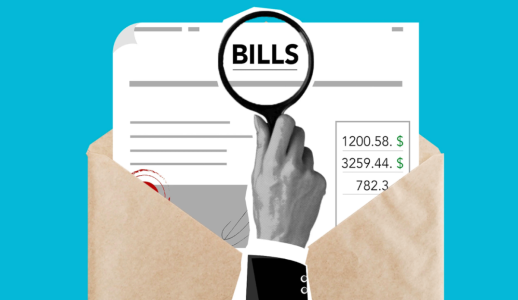Rising cost of living pushes vulnerable Australians towards risky 'Buy Now, Pay Later' schemes
- Replies 7
'Buy Now, Pay Later' (BNPL) schemes have become increasingly popular in recent years, offering consumers the ability to make purchases without immediate payment.
However, as these schemes gain popularity, concerns are being raised about the potential risks they pose to consumers. A new survey reveals that a significant number of users are struggling to keep up with their repayments, leading to a rise in debt and financial stress.
BNPL schemes typically work by allowing consumers to make purchases and then pay for them in installments over a period of time, often without incurring interest or fees. But little do users know that this convenience comes at a cost.
Consumer advocacy groups have highlighted the potential dangers of BNPL schemes, including the risk of building up high levels of debt, difficulty in managing repayments, and a lack of transparency in terms and conditions.
With many people already struggling to make ends meet, these schemes could be putting vulnerable consumers at risk.

For single parent Jessica, the rising cost of living meant that she had no other choice but to rely on a popular BNPL provider, Zip, to help make ends meet over the summer holiday break.
'Sometimes it was impulsive spending, but that comes from going without for so long and suddenly feeling like I don't have to – so I played with the devil a bit,' she said.
Her story is one of many echoed around the country and is a sign of what many Australians are facing around the cost-of-living crisis – something that looks like it's not going anywhere anytime soon.
Those who rely on government help and benefits can have a hard time getting approved for traditional credit like credit cards and loans, and this forces them to use BNPL options more often. Unfortunately, these schemes aren't regulated as much as other credit options and can be hard to pay back if you don't have a lot of money or a limited source of income, further hurting their credit score.
A survey done by the Antipoverty Centre in late 2022 found that its members have been increasingly using BNPL options to pay for things they need. The spokesperson for the centre, Kristin O'Connell, said this is because the money they get from the government just doesn't cover how much things cost now.
'I couldn't have afforded Christmas otherwise,' said Jessica, who was heartbroken having to rely on these types of options just to make ends meet and provide for her loved ones during the holidays.

The number of people reaching out for support with BNPL debts has skyrocketed, leaving consumer groups scrambling to keep up.
Shungu Patsika, a Senior Financial Counsellor at the National Debt Helpline, reported: 'It was an issue before the holiday period, but it has certainly skyrocketed since then.'
Furthermore, Patsika reveals that not only have the number of people with BNPL debts increased, but the outstanding balances on those accounts has also surged.
He also shared that the socio-economic backgrounds of clients contacting the service for help are also shifting. Before, it was mostly people who regularly relied on benefits and government payments, but now, more and more working Australians are asking for help with BNPL debts.
'People are saying that they're desperate and because buy now, pay later products are not regulated like other credit products, it's easier for them to access, and they underestimate their capacity to repay these products,' Patsika said, painting a dire picture of the current debt crisis that is gripping the nation.

The Federal Government has presented some options for the future regulation of BNPL providers, one of which will mean much tighter regulation similar to that of credit products.
However, this comes with a conundrum for vulnerable people with limited incomes - what choice do they have but to turn to BNPL services for essential items like groceries, rent, and utilities?

For those needing help with their BNPL debts, there are several sources of advice and assistance available out there. These include:
And while urgent action is needed from both the Government and BNPL providers to protect us, it's important to know that no one should have to depend on credit and BNPL services just to make ends meet.
Members, if you have any tips or stories to share about BNPL, then please let us know in the comments below. And please, share this article with your friends and family to raise awareness of the risks.
Stay safe and remember to always stay informed of your options and find what's best for your financial situation.
However, as these schemes gain popularity, concerns are being raised about the potential risks they pose to consumers. A new survey reveals that a significant number of users are struggling to keep up with their repayments, leading to a rise in debt and financial stress.
BNPL schemes typically work by allowing consumers to make purchases and then pay for them in installments over a period of time, often without incurring interest or fees. But little do users know that this convenience comes at a cost.
Consumer advocacy groups have highlighted the potential dangers of BNPL schemes, including the risk of building up high levels of debt, difficulty in managing repayments, and a lack of transparency in terms and conditions.
With many people already struggling to make ends meet, these schemes could be putting vulnerable consumers at risk.

A new survey revealed a worrying trend - an increasing reliance on 'Buy Now, Pay Later' (BNPL) schemes to pay for basic necessities. Credit: Pexels/Monstera.
For single parent Jessica, the rising cost of living meant that she had no other choice but to rely on a popular BNPL provider, Zip, to help make ends meet over the summer holiday break.
'Sometimes it was impulsive spending, but that comes from going without for so long and suddenly feeling like I don't have to – so I played with the devil a bit,' she said.
Her story is one of many echoed around the country and is a sign of what many Australians are facing around the cost-of-living crisis – something that looks like it's not going anywhere anytime soon.
Those who rely on government help and benefits can have a hard time getting approved for traditional credit like credit cards and loans, and this forces them to use BNPL options more often. Unfortunately, these schemes aren't regulated as much as other credit options and can be hard to pay back if you don't have a lot of money or a limited source of income, further hurting their credit score.
A survey done by the Antipoverty Centre in late 2022 found that its members have been increasingly using BNPL options to pay for things they need. The spokesperson for the centre, Kristin O'Connell, said this is because the money they get from the government just doesn't cover how much things cost now.
'I couldn't have afforded Christmas otherwise,' said Jessica, who was heartbroken having to rely on these types of options just to make ends meet and provide for her loved ones during the holidays.

Jessica had no other choice but to rely on a popular BNPL provider, Zip, to help make ends meet over the holidays. Credit: Pexels/SHVETS Production.
The number of people reaching out for support with BNPL debts has skyrocketed, leaving consumer groups scrambling to keep up.
Shungu Patsika, a Senior Financial Counsellor at the National Debt Helpline, reported: 'It was an issue before the holiday period, but it has certainly skyrocketed since then.'
Furthermore, Patsika reveals that not only have the number of people with BNPL debts increased, but the outstanding balances on those accounts has also surged.
He also shared that the socio-economic backgrounds of clients contacting the service for help are also shifting. Before, it was mostly people who regularly relied on benefits and government payments, but now, more and more working Australians are asking for help with BNPL debts.
'People are saying that they're desperate and because buy now, pay later products are not regulated like other credit products, it's easier for them to access, and they underestimate their capacity to repay these products,' Patsika said, painting a dire picture of the current debt crisis that is gripping the nation.

People shouldn't have to rely on BNPL schemes just to make ends meet. Credit: Pexels/Karolina Grabowska.
The Federal Government has presented some options for the future regulation of BNPL providers, one of which will mean much tighter regulation similar to that of credit products.
However, this comes with a conundrum for vulnerable people with limited incomes - what choice do they have but to turn to BNPL services for essential items like groceries, rent, and utilities?
Key Takeaways
- As 'Buy Now, Pay Later' (BNPL) schemes gain popularity, concerns are being raised about the potential long-term risks they pose to consumers.
- A new survey reveals that a significant number of users are struggling to keep up with their repayments, leading to a rise in debt and financial stress.
- For Aussies on a limited income, who rely on Centrelink payments such as the Age Pension, they have no choice but to rely on BNPL schemes just to make ends meet.
- speaking to your service provider,
- speaking to the National Debt helpline at 1800 007 007,
- or visiting ASIC's Moneysmart website and finding a financial counsellor near you.
And while urgent action is needed from both the Government and BNPL providers to protect us, it's important to know that no one should have to depend on credit and BNPL services just to make ends meet.
Members, if you have any tips or stories to share about BNPL, then please let us know in the comments below. And please, share this article with your friends and family to raise awareness of the risks.
Stay safe and remember to always stay informed of your options and find what's best for your financial situation.







